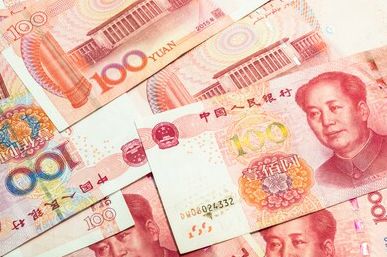Cryptocurrency traders in China need to be on the lookout for scammers presenting themselves as the nation’s CBDC. The fake tokens started making rounds shortly after a Chinese official announced the nation would launch a digital coin called Digital Currency Electronic Payments system (DCEP).
The announcement by the Chinese official added that China is aiming to be the first nation in the world to issue a central bank-backed digital currency. This was one in a series of statements by Chinese officials supportive of blockchain technology. Even the nation’s president has made statements that are supportive of the blockchain.
As soon as the name DCEP was mentioned, scammers got busy working on fake imitation tokens. There currently multiple scams running on Chinese online platforms that are trying to pass as the real thing. However, you cannot buy the fake DCEP tokens on the main exchanges. The only place you can access them is on small platforms such as peer-to-peer platforms and decentralized exchanges. This is because such platforms do not require you to sign up with a third party to trade.
About China’s Digital Currency
China’s central bank has been working on its digital currency for about six years. The central bank is planning to issue a digital wallet to accompany its digital currency. Besides that, the coin will not be running on a decentralized blockchain such as Ethereum and Blockchain. Instead, government-approved entities will be in charge of the coin. This coin will run on a two-tier system. The first tier will be run by banks. On the second tier, there will be major retailers in the nation.
The Chinese mobile phone app for the digital currency is already in the advanced stages. Some reports indicate that it will allow users to transfer funds between each other when they hold them in close proximity. As such, it will not rely on QR codes but will instead use Near Field Technology. As a result, you will be able to use the coin even without an internet connection, which is important, especially in rural areas with poor network coverage.
China is upbeat about the Blockchain
A few days ago, China’s president urged companies and government agencies to begin using blockchain technology. He wants the nation to be a leader in the technology. The president sees this technology as being crucial to China’s innovativeness. He mentioned various uses cases such as combating poverty and use in the financial sector.
A day after Xi made his sentiments on the blockchain known the nation passed its first cryptography law. This law provides guidelines on how companies that want to invest in the blockchain sector can operate. The law provides support for research and development in the use of blockchain technology. China believes that create standardized rules for the development of blockchain technology will help to spur development in the industry. It is likely that in the future, this law could be amended. The industry is still young and dynamic. China’s current crypto law will come into force at the start of 2020.
Image Source: Shutterstock
Notice: Information contained herein is not and should not be construed as an offer, solicitation, or recommendation to buy or sell securities. The information has been obtained from sources we believe to be reliable; however no guarantee is made or implied with respect to its accuracy, timeliness, or completeness. Authors may own the crypto currency they discuss. The information and content are subject to change without notice. Visionary Financial and its affiliates do not provide investment, tax, legal or accounting advice. This material has been prepared for informational purposes only and is the opinion of the author, and is not intended to provide, and should not be relied on for, investment, tax, legal, accounting advice. You should consult your own investment, tax, legal and accounting advisors before engaging in any transaction. All content published by Visionary Financial is not an endorsement whatsoever. Visionary Financial was not compensated to submit this article Please also visit our Privacy policy; disclaimer; and terms and conditions page for further information.

